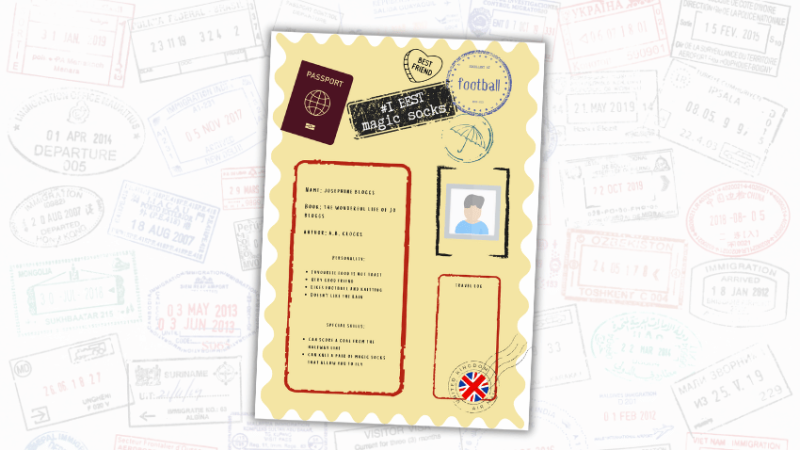Teaching children Standard English – It’s not about speaking like The Queen!

There are many ways to help children understand the difference between Standard English and other ways of speaking. Just be careful which real-life examples you share with your class!

- by Teachwire
- Classroom expertise and free resources for teachers

When I was a (much) younger teacher, I played five-a-side football every Wednesday at some pitches near to my school.
One evening, the scores were tied at 3-3 with just two minutes of the game left. My last reserves of energy took me past a defender and through on goal. I paused for a second, ready to slot the ball into the net when I suddenly found my legs had disappeared from under me. Foul! I stood up to protest, only for the referee to wave play on. Furious, I stormed across to the defender responsible and made it pretty clear that I wasn’t happy.
“Goodness me,” I said. “I think that you fouled me there and I’m not terribly happy about it.” Or words to that effect, anyway.
It was then that I heard laughter. I looked up to see a group of my Y6 boys pressed against fence, watching. “See you tomorrow, Mr Clements,” one shouted, a giant grin spread across his face.
The next day I’ve never seen the children so keen to get into class. Once they were sat down, the first hand shot up.
“Good morning, Ali.” “I saw you playing football last night, Mr Clements.” “Did you, Ali?” “Yes. You were using some… er… non-Standard English. You said… ” “Great. Thanks, Ali. Books out everyone.”
Standard vs. Non-Standard
Teaching in a school in central London, we often talked about the use of both Standard and non-Standard English, hence the boys taking great delight in spotting my ‘interesting’ use of language. Helping children to be able to code switch to Standard English was vital – both for situations that required more formal spoken language, and for the impact it had on children’s writing. Promoting Standard English in the classroom is also part of both the 2014 National Curriculum and the Teacher Standards for England.
Sort out your language
While the two are often conflated, Standard English isn’t the same as formal English. Informal Standard English uses contractions (wouldn’t, isn’t), colloquial language (mates, the Rec) and abbreviations (TV, instead of television) – but doesn’t use features of non-Standard English such as double negatives (‘he hasn’t got none’) and dialect-specific subject-verb agreement (‘we was’ instead of ‘we were’). Thinking about the two things and sorting phrases and sentences into formal and informal, Standard and non-Standard can be a useful way of making this distinction.
‘What we all understand’
No varieties are right or wrong, better or worse – some ways of speaking and writing are just better suited to different situations and audiences. This idea sits at the heart of helping children to code-switch to Standard English and back.
Approached insensitively, encouraging code-switching becomes about ‘speaking in a better way’, potentially devaluing local dialects or ways of speaking that are used in a child’s home. Talking about children’s own language use, modeling ‘classroom language’, using drama and role play to explore language in different situations, and analysing the language from books and films can all help children to be aware of different language patterns and ultimately allow them to choose the words they use to express themselves in different contexts. Deborah Myhill and her colleagues at the University of Exeter use the phrase ‘language that everyone can understand, not just people who live here’.
Forget the ‘Queen’s English’
Children sometimes need to be reminded that it is perfectly possible to use Standard English constructions in any accent at all. When we don’t do this, accents often get mixed up with the structure of language, especially if children are encouraged to switch to Standard English by ‘using a posh voice’ or ‘speaking like a queen’. These two ways of introducing Standard English should be avoided at all costs as they make it something ‘other’, a way of speaking used people ‘who aren’t like us’. What we want is for Standard English to be a perfectly normal way of speaking – something for children to use when the situation demands it. Listening to the same sentence in different accents can be useful in helping children to see that the words stay the same, even if the way they are pronounced is different.
Use books as examples
Books can be used in two key ways. Firstly, they can illustrate Standard English in whole, grammatically correct sentences – something that is difficult to find in speech. Children can see how the language is organised and how it differs from spoken language. Texts where characters do not speak in Standard English are also useful (see panel, left). They give children an opportunity to discuss the features of different varieties of language.
Take every teaching opportunity
When I was at university, a tutor told me that even when things aren’t going to plan, a good teacher can turn any situation into a teaching point. With this in mind, I could have shared my words on the football pitch with the whole class. I could have made the teaching point that while the grammar and syntax I employed in my sentence still reflected the structures of Standard English, some of the vocabulary choices I made were not Standard English. Looking back, I’m rather pleased I didn’t. This might have been one opportunity to make a teaching point that was best missed!
Unconventional methods
While written texts are different from spoken language, they can still provide a useful vehicle for looking at different modes of expression – particularly when characters speak in regional dialects or use other non-Standard speech patterns. Some useful texts for exploring non-Standard English are:
- I Yam a Donkey (Cece Bell)
- The Raven (Edgar Allen Poe)
- The Red Badge of Courage (Stephen Crane)
- Just So Stories (Rudyard Kipling )
- How the Whale Became (Ted Hughes)
- The BFG (Roald Dahl)
- Shakespeare Stories (Leon Garfield )
- Dis Poetry (Benjamin Zephaniah)
- Listen Mr Oxford Don (John Agard)
- The Owl Service (Alan Garner)
- One Thousand and One Arabian Nights (retold by Geraldine McCaughrean)
James Clements is an education writer, researcher and enthusiastic, if limited, midfielder. He runs the education website shakespeareandmore.com.










